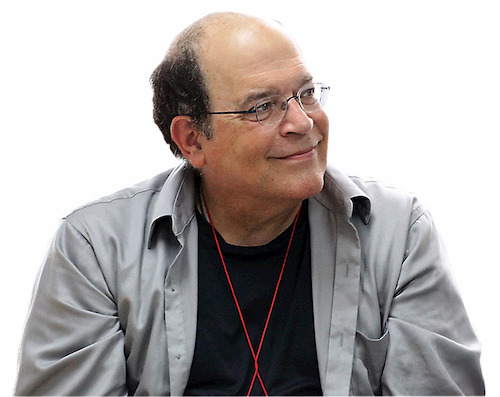In the midst of this global pandemic, we miss the palpable energy and empathy that fills a theater during a live performance, with characters and audience immersed in the same storyline. Theater can reflect and amplify the multidimensional reality of what it means to be human, and at a time like this, provides solace, insight, and education. Thankfully, because of playwrights like Kim Peter Kovac—and those of you in our WtW community—the vitality of the theater need not be lost, but transferred instead to the page.
Read below the wisdom of an esteemed playwright and poet who utilizes theatrical writing to foster acceptance and appreciation.

1) You recently wrote an article about the ways in which theater for young people is a tool for exploring and amplifying identity, intersectionality, and empathy. Can you explain for our young writers what you mean by this? In what ways is theater a conduit?
Our young people are far more comfortable dealing with and accepting the intersections among ethnicity, national identity, religion, sexuality, gender identity, and such, than those of us who are in the generation in power now (adults in their 50s and up). Part of the reason is that young people seem more accepting of the idea that multiple identities exist in one person. Someone is not just Muslim, or not just black, or not just lesbian. And certain identities (such as gender) may change over time.
2) What inspired you to pursue playwriting and poetry, and what motivates you to continue your craft?
I focus on new plays because that’s the starting point of theatre. While there is a whole generation of teachers who focus on plays from, to coin a phrase, “dead white guys,” I think there’s a special vibrancy to new work.
I started writing poetry as a way of telling stories in verse. Same impulse, different form.

3) Why have you chosen to focus much of your work on theater for young people? What about this population speaks to you?
For me, it’s very simple—the future is in our children. When I started in the field, so much work for young people was terrible. Tony Reekie, former head of the Imaginate Festival in Scotland (one of the best in the world), once said that the reason he was so passionate about finding good work for young people was that he never saw any good performance for young people before he was 18.
It’s much better now, but the good work needs to continue.
4) You’ve applied a global lens to much of your work. In what ways do you consider theater a tool for fostering global citizenship?
Theatre, at its best, can be called a “greenhouse for empathy.” Because the event happens in a space shared by performers and audience, there’s a shared resonance that can plumb to deep levels. Even if you don’t know quite how you as an audience member connected to a character unlike you, you may very well have connected.
5) What are you searching for in a winning playwriting entry?
The most important thing for me is individual voice—the writer is finding a way to write that is individual and particular to them. I think there’s much more potential in a play that has an individual voice that may have a few flaws or be a little “raggedy around the edges,” as it were, than a neat and perfectly crafted play without that individual voice.





